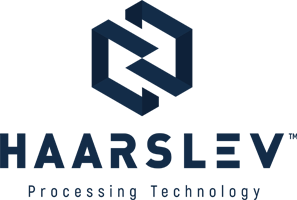
Cloud Transformation
Holistic approach ensuring smooth digital transformation for every enterprise
Use the full potential of the cloud in business transformation
The holistic approach we offer to support your business development in the vision of "Cloud Transformation" is more than just migrating IT infrastructure and applications from your data centers to the cloud.
Cloud permeates the entire company, integrating business, technical, process, and human areas. Therefore, planning, implementing and monitoring the progress of Cloud Transformation is a complex process that requires many decisions across various areas of technology or company operations.
The key to the success of such a process lies in a skillful combination of interdisciplinary IT knowledge (architecture, security, automation, integration), business (industry requirements, business plans, business goals and KPIs, operational costs, financial information) or organizational aspects (people, processes, training).
Check what Cloud Transformation vision by TT PSC means

They trust us
Examples of using cloud computing in practice
Below you will find a few examples of our customers' Success Stories, showing how the use of cloud computing services accelerated the development of their business.
Strong partnerships with worldwide top cloud service providers
We provide a holistic approach, i.e. comprehensive cloud migration and modernization support, building cloud applications from scratch, as well as managing cloud services, regardless of selecting one of the available cloud platforms.
You have the freedom to choose any cloud provider, including the largest public cloud services vendors in the industry, such as Microsoft Azure, Amazon Web Services (AWS), Google Cloud Platform or Oracle Cloud.
We also implement projects using hybrid cloud or multi-cloud solutions.
Key business advantages of cloud computing
The benefits of the cloud computing services and the properties of this technology directly translate into the business advantages, such as:
Multiple cloud computing services
Whether you are taking your first steps in the clouds or are already in the phase of mass migration of systems and applications, we provide comprehensive support for the secure digital transformation of every enterprise, using the full potential of cloud computing.
Business benefits of cloud computing
Are you wondering what use of cloud computing will be beneficial for your business?
You don't have to associate your adventure with cloud computing services as jumping headfirst into dreadful water!
Fill in a short contact form to arrange a free and remote consultation. One of our experts will advise you on what we can do for you.
Industry application of cloud computing
The use of the cloud is not only a trend but also an inherent element of modern business with a wide range of applications in various industries.

Automotive
- Smart Vehicles
Cloud with IoT enable real-time analysis of sensor data, supporting autonomous driving. - Consumer Services
Mobile apps, navigation and entertainment using cloud services improve customer experiences. - Fleet Management
Cloud computing makes it easier to monitor and optimize your vehicle fleet.
(r)Evolution of IT thanks to cloud services
Cloud technology is revolutionizing the way companies use computing resources and IT services.
Here are some key aspects related to the use of cloud:
What are our areas of support for cost optimization in the cloud?
Selected solutions supported by cloud power
Below, we present selected examples of the use of the cloud to develop tailor-made solutions in the fields of Data & AI, IIoT, Augmented Reality, and PLM.
Cloud technology in a nutshell










































